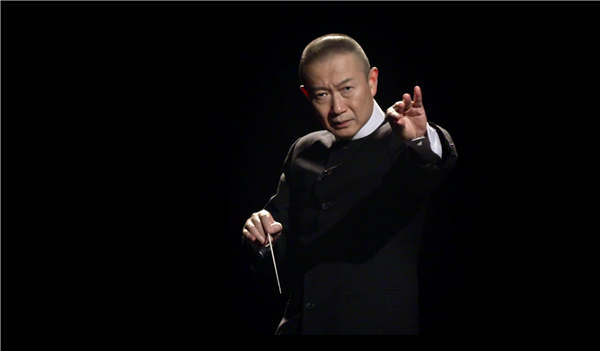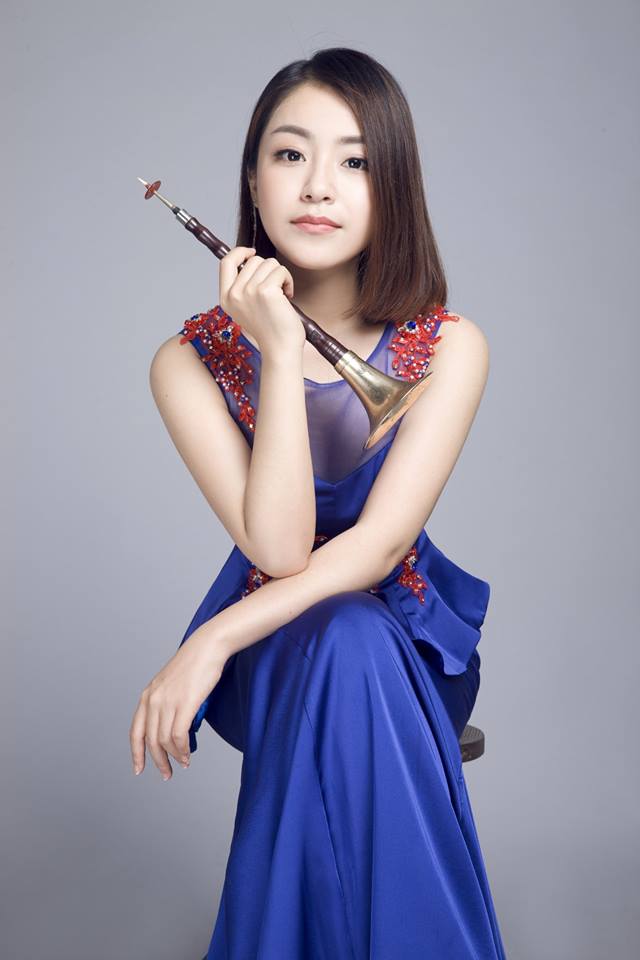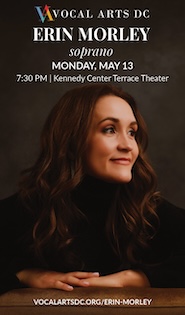Tan Dun, Shenzhen orchestra greet Chinese New Year with a flourish at Kennedy Center

Tan Dun conducted the Shenzhen Symphony Orchestra Thursday night at the Kennedy Center. File photo: China Daily
They dialed up birdsong on cell phones, used instruments to mimic the rustle of wind, and conjured the spectacle of fireworks orchestrally. It was all in an evening’s spirited work for the Shenzhen Symphony Orchestra as it rang in Chinese New Year Thursday at Kennedy Center Concert Hall.
With help from stellar soloists and an Academy Award-winning composer, the orchestra from southeastern China bade an exuberant farewell to the Year of the Rooster (and hello to the Year of the Dog), introducing two contemporary Chinese works to an American audience: one showcasing an ancient traditional instrument rarely heard outside of Asia; the other reimagining the score of a hit movie.
Under the baton of guest conductor — and Oscar winner — Tan Dun, the Shenzhen ensemble gave a sparkling U.S. premiere of Chinese composer Guan Xia’s 100 Birds Flying Towards the Phoenix. Written for orchestra and suona, a Chinese double-reed woodwind instrument, the eight-minute piece blends traditional Chinese folk melodies with bird sounds.

Wenwen Liu
Its star was Wenwen Liu, a 13th-generation suona player. Liu made the suona chirp, honk and crow as the orchestra chattered back with trills and tweets. Sometimes the soloist sounded like an oboe or a bagpipe, and sometimes like an entire feathered flock flitting above the orchestra’s cheerful melodic effusions. Either way, the music meshed well and accentuated Liu’s virtuosic playing.
Taken from the his score for the 2000 movie Crouching Tiger, Hidden Dragon, Dun’s Triple Concerto for Piano, Violin, and Violoncello was the other U.S. premiere: a five-movement overhaul of his Oscar- and Grammy-winning film score for director Ang Lee’s martial arts epic. On Thursday, the work’s repeating rhythms created a meditative, trance-like foundation for layered harmonies and melodic phrases that expanded and contracted throughout.
Violinist Dan Zhu, cellist Jiapeng Nie and pianist Yumin Wu were as attuned to one another as they were to their composer-conductor, who turned around often to direct them. The burnished sweetness of Nie’s cello blended well with the mahogany richness of Zhu’s violin, and the air of dreaminess created by pianist Wu in the fourth movement made his ominous counterpart — an incessant, foreboding pulse from the low orchestral strings — all the more unsettling.
It was that sort of juxtaposition — the soloists’ thematic arpeggios soaring above the orchestra’s earthy thrumming — that gave a theatre-of-the-absurd quality to the performance. Imagine ballerinas dancing in front of a screen showing a Bruce Lee movie. The Triple Concerto was likewise sprinkled with expect-the-unexpected motifs: After one long build-up, the orchestra stopped, and the sound of trickling water dominated the silence. It was an interesting if somewhat random effect. Still, as a whole, the triple concerto worked well.
Two pieces by Stravinsky bookended the concert: first, a colorful and precise read of Fireworks that allowed the musicians to acclimate to the hall’s dry acoustics; and finally a triumphant performance of The Firebird Suite. For most of the latter, Dun did without a baton and held his hands out like a puppeteer, simply wiggling his fingers to convey his desires. The musicians responded with their best playing of the evening, sounding focused and lithe as Dun kept a clean tempo, even towards the end when many orchestras accelerate into a cacophony of splattered notes. Instead of producing haphazard splashes of color, the orchestra glowed on every chord.
Dun and the orchestra provided an encore with another of his works, Passacaglia: Secret of Wind and Birds, an apt complement to Xia’s aviary ode with animated woodwinds and brass, string glissandos and pizzicatos. Smack in the middle, all of the instrumentalists held up their mobile phones and hit play on the birdsong ringtones — a fun electronic greeting for the new year.
The Kennedy Center continues its Chinese New Year celebration with traditional folk music from Chengdu, 6 p.m. Friday on the Millennium Stage, kennedy-center.org.



